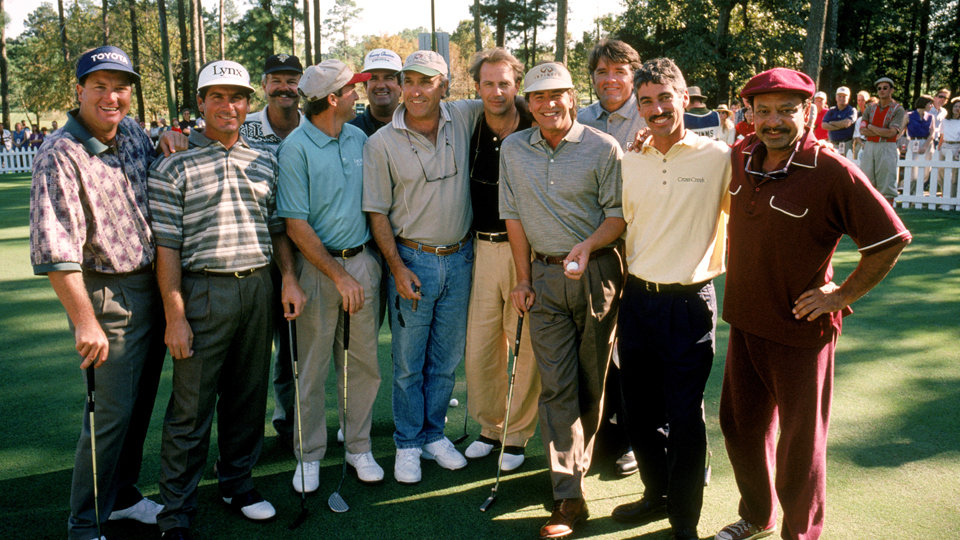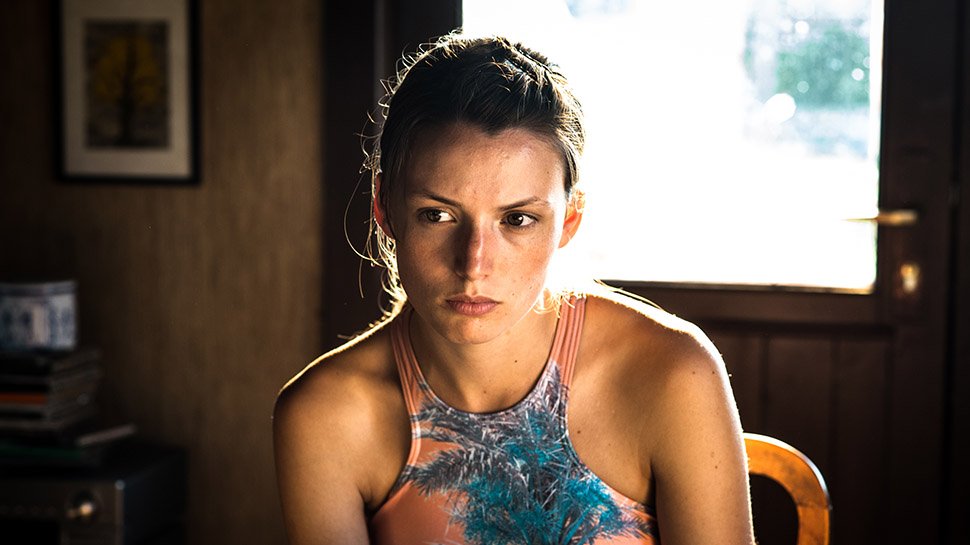1.
“Gaite Jansen on ‘Supernova’“: The “Peaky Blinders” star chats with me at Indie Outlook about her wonderful 2014 film, currently available in the U.S. via Vimeo On Demand.
“[Indie Outlook:] ‘I loved your performance in ‘Supernova.’ How did you become involved in the film?’ [Jansen:] ‘I auditioned for the script when I was about 17. I had fallen in love with the script and with Tamar immediately. The film had some problems getting financed and it took another three years before we could actually make the movie. Tamar wanted a younger girl at that point, but we both had grown into the thought of me playing it, and so she decided to make the character a little bit older, which I think worked out better for the story. The script appealed to me because I know Meis. I know how she feels. I know the boredom and the willingness of something to happen as a teenager so well. I think it’s a beautiful coming of age story that is so close to reality. Whilst shooting it, I became Meis and Meis became part of me. She still is.’ [Indie Outlook:] ‘What was your collaboration with Tamar like in terms of developing the character of Meis? Was the comfort you developed with Tamar crucial in preparing you for the scenes requiring nudity?’ [Jansen:] ‘Tamar and I became really close. I understood what she wanted to make and she gave me the freedom of developing Meis in all the ways I wanted, even though—of course—it was her script. We talked about the nudity and how I dislike being nude on screen (duh). But she explained to me everything I wanted to know. I knew what she wanted to make and I completely stood, and still stand, behind this story. I think ‘Supernova’ is a great example of functional nudity.’”
2.

“Memories of Professor Scorsese: ‘I Remember Film School’“: Leonard Maltin reposts a priceless essay from Allan Arkush at his blog.
“We wanted a course strictly devoted to contemporary American movies to be taught by a young professor named Martin Scorsese. Faced with this sorry state of affairs, we did what any good radical student of the late Sixties would do: we went on strike and staged a sit-in. We liberated the eighth floor from the iron fist of the Serbo-Croatians. Instead of closing the floor at 9:00 P.M., the entire student body showed up for an all-night session of movies and whatever college kids did at all-night sessions in the Psychedelic Era. We saw ‘Rosemary’s Baby,’ ‘Help!,’ and ‘My Darling Clementine.’ Around 2:00 A.M., we ran out of movies and things began to look desperate. Scorsese took charge. He made some phone calls, and soon I was running across town to a sixth floor walk-up on St. Mark’s Place. The apartment door was opened by a guy with crooked glasses. He didn’t think it was unusual for someone to be picking up films at this hour. On the other hand, his apartment was very unusual. Each wall was painted a different color—purple, yellow, green, etc.—and there were film cans stacked everywhere, all unlabeled. We had to open each can to see what it was. Inside the oven, we found a print of ‘Stagecoach’ which he handed to me. ‘Everyone loves ‘Stagecoach’ but you need something really weird to go with it.’ He opened the refrigerator which was stocked with more films, orange juice, and mescaline. ‘Aha, the perfect film for the occasion. I guarantee it. I wish I could watch it with you, but I’ve got to start on a term paper that’s due in about twelve hours.’”
3.

“Bérénice Bejo: ‘We cannot live with fear in our bodies’“: The Guardian‘s Ryan Gilbey chats with the star of “The Artist” and “The Childhood of a Leader” about France’s year of terror.
“In ‘The Artist,’ the Oscar-winning homage to the silent era, she was Peppy Miller, a movie extra who rose to the top faster than bubbles in champagne. The camera fell unambiguously in love with Bejo, and millions of cinemagoers followed suit. Bejo was already married to the film’s writer-director, Michel Hazanavicius; the couple live with their two children, a son of eight and a daughter who is almost five, as well as Hazanavicius’s daughters, aged 18 and 12, from his previous marriage. They met in 2005 while shooting the spoof ‘OSS 117: Cairo, Nest of Spies,’ starring Jean Dujardin, later to be the star of ‘The Artist,’ as a suave, moronic secret agent. The picture was a riot, but it had serious points to make about colonialist attitudes to the Arab world; it felt as if ‘Austin Powers’ had been rewritten by Edward Said. Bejo’s function was to upbraid the hero, often with no more than a disbelieving, deadpan look, whenever he made another gross cultural faux pas, such as telling the muezzin to ‘shut the f—k up!’ during the call to prayer. Western ignorance and insensitivity were the targets. Even so, could the film be made now? She gives a gasp. ‘It’s funny you ask that. I was wondering also. I will ask Michel tonight what he thinks. I’m not sure.’ ‘OSS 117’ opened in April 2006, just two months after the satirical magazine Charlie Hebdo published an anti-fundamentalist cartoon of a sorrowful Muhammad saying: ‘Cest dur d’être aimé par des cons’ (‘It’s hard being loved by jerks’). ‘People asked me when OSS 117 was released: ‘Are you not scared?’ she recalls. ‘I thought, ‘Have you even seen the film?’”
4.

“‘Tin Cup’ Oral History: One of Golf’s Most Iconic Movies“: As chronicled by Chris Nashawaty at Golf.com.
“During the final round of the 1993 Masters, Chip Beck etched his name in the annals of golf infamy with his second shot on the par-5 15th hole. Beck trailed Bernhard Langer by three strokes with three holes to play, but rather than go for the green in two, he laid up, inciting the outrage of forehead-slapping second-guessers watching at home. Ron Shelton, the director of such brilliantly offbeat sports movies as ‘Bull Durham’ and ‘White Men Can’t Jump,’ was one of those armchair critics. When Beck made his fateful decision, Shelton immediately called his golfing buddy, screenwriter John Norville. The two men had kicked around ideas for a golf movie over the course of several years and even more adult beverages, but they could never find a way into the story. Beck gave them what they were looking for. What if the hero of the movie was the anti-Beck, a guy constitutionally incapable of laying up, a guy who went for it all the time, even when—especially when—he shouldn’t? That was the moment ‘Tin Cup’ was born. Released on August 16, 1996, Shelton and Norville’s long-gestating labor of love may be the most thrilling (and accurate) movie ever made about golf. The romantic comedy stars Kevin Costner as Roy ‘Tin Cup’ McAvoy, a washed-up pro drinking his days away at a Texas driving range; Don Johnson as David Simms, his smarmy, play-it-safe college rival who’s become a Tour star; Rene Russo as Dr. Molly Griswold, the daffy shrink who comes between them; and Cheech Marin as Romeo, Roy’s loyal sidekick and caddie. There are cameos by dozens of Tour pros, too, among them Fred Couples and Johnny Miller. But the film is most famous for its excruciating climax, when Roy self-destructs on the 72nd hole of the U.S. Open. To commemorate ‘Tin Cup’’s 20th anniversary, GOLF tracked down the cast and crew for a no-holes-barred look back at an evergreen fairway classic.”
5.

“Confessions of a Pokémon Go Grinch: Ethical Questions About World’s Most Popular App“: According to The American Prospect‘s Susan Linn.
“My favorite 16-year-old and I spent several happy hours playing Pokémon Go the other day. We joined the throngs tapping and swiping away while meandering through historic Boston in sweltering heat. I felt a fleeting yet mysteriously intense connection with other players, pride in my single-handed capture of a rare Squirtle, and vague anxiety waiting for the phone vibrations signaling a nearby Pokémon. And I was oblivious to everything but the thrill of the chase as I stopped dead in the middle of a busy sidewalk to catch one. Was it fun? Yes. Do I wish I was writing one of those blogs saying ‘I was skeptical about Pokémon Go, one of the most downloaded apps ever, but now I’m a big fan?’ Yes. Am I going to do that? No. Even as technology pundits laud the game for ushering in the age of augmented reality, I’m worried about a host of moral, ethical, and even legal questions that urgently need answers. Advocates for children are already calling on Niantic, the company that created the game, not to cash in by luring kids to McDonald’s and other commercial enterprises. Others are calling out Pokémon Go for privacy violations. And some seem to have thrown up their hands at the game’s staggering popularity and are merely praising it for getting kids outside. As for me, I am disturbed that the Pokémon Company and its partners have been littering advertising icons absolutely everywhere—even in cemeteries, houses of worship, and national parks, which are traditionally commercial-free. Pokémon are even infiltrating on private property. One young relative recently informed me excitedly that Gastly, a fairly uncommon Pokémon, was lurking in or around my house. Really? Without my permission?”
Image of the Day

BFI’s Samuel Wigley unearths rare images of the ‘Dr. Strangelove’ custard pie fight.
Video of the Day
The remarkable Lily-Rose Aslandogdu stars in “Still The Most Shocking Second a Day,” a masterful short film serving as a Save the Children PSA. It is a follow-up to 2014’s “Most Shocking Second a Day Video,” directed by Martin Stirling, who I interviewed last year.












